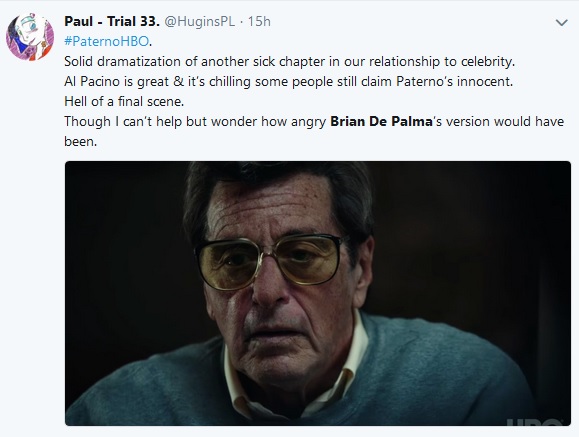Comey is what Saul Bellow called a “first-class noticer.” He notices, for instance, “the soft white pouches under” Trump’s “expressionless blue eyes”; coyly observes that the president’s hands are smaller than his own “but did not seem unusually so”; and points out that he never saw Trump laugh — a sign, Comey suspects, of his “deep insecurity, his inability to be vulnerable or to risk himself by appreciating the humor of others, which, on reflection, is really very sad in a leader, and a little scary in a president.” During his Senate testimony last June, Comey was boy-scout polite (“Lordy, I hope there are tapes”) and somewhat elliptical in explaining why he decided to write detailed memos after each of his encounters with Trump (something he did not do with Presidents Obama or Bush), talking gingerly about “the nature of the person I was interacting with.” Here, however, Comey is blunt about what he thinks of the president, comparing Trump’s demand for loyalty over dinner to “Sammy the Bull’s Cosa Nostra induction ceremony — with Trump, in the role of the family boss, asking me if I have what it takes to be a ‘made man.’”
Throughout his tenure in the Bush and Obama administrations (he served as deputy attorney general under Bush, and was selected to lead the F.B.I. by Obama in 2013), Comey was known for his fierce, go-it-alone independence, and Trump’s behavior catalyzed his worst fears — that the president symbolically wanted the leaders of the law enforcement and national security agencies to come “forward and kiss the great man’s ring.” Comey was feeling unnerved from the moment he met Trump. In his recent book “Fire and Fury,” Michael Wolff wrote that Trump “invariably thought people found him irresistible,” and felt sure, early on, that “he could woo and flatter the F.B.I. director into positive feeling for him, if not outright submission” (in what the reader takes as yet another instance of the president’s inability to process reality or step beyond his own narcissistic delusions).
After he failed to get that submission and the Russia cloud continued to hover, Trump fired Comey; the following day he told Russian officials during a meeting in the Oval Office that firing the F.B.I. director — whom he called “a real nut job” — relieved “great pressure” on him. A week later, the Justice Department appointed Robert Mueller as special counsel overseeing the investigation into ties between the Trump campaign and Russia.
During Comey’s testimony, one senator observed that the often contradictory accounts that the president and former F.B.I. director gave of their one-on-one interactions came down to “Who should we believe?” As a prosecutor, Comey replied, he used to tell juries trying to evaluate a witness that “you can’t cherry-pick” — “You can’t say, ‘I like these things he said, but on this, he’s a dirty, rotten liar.’ You got to take it all together.”
Put the two men’s records, their reputations, even their respective books, side by side, and it’s hard to imagine two more polar opposites than Trump and Comey: They are as antipodean as the untethered, sybaritic Al Capone and the square, diligent G-man Eliot Ness in Brian De Palma’s 1987 movie “The Untouchables”; or the vengeful outlaw Frank Miller and Gary Cooper’s stoic, duty-driven marshal Will Kane in Fred Zinnemann’s 1952 classic “High Noon.”
One is an avatar of chaos with autocratic instincts and a resentment of the so-called “deep state” who has waged an assault on the institutions that uphold the Constitution.
The other is a straight-arrow bureaucrat, an apostle of order and the rule of law, whose reputation as a defender of the Constitution was indelibly shaped by his decision, one night in 2004, to rush to the hospital room of his boss, Attorney General John D. Ashcroft, to prevent Bush White House officials from persuading the ailing Ashcroft to reauthorize an N.S.A. surveillance program that members of the Justice Department believed violated the law.
One uses language incoherently on Twitter and in person, emitting a relentless stream of lies, insults, boasts, dog-whistles, divisive appeals to anger and fear, and attacks on institutions, individuals, companies, religions, countries, continents.
The other chooses his words carefully to make sure there is “no fuzz” to what he is saying, someone so self-conscious about his reputation as a person of integrity that when he gave his colleague James R. Clapper, then director of national intelligence, a tie decorated with little martini glasses, he made sure to tell him it was a regift from his brother-in-law.
One is an impulsive, utterly transactional narcissist who, so far in office, The Washington Post calculated, has made an average of six false or misleading claims a day; a winner-take-all bully with a nihilistic view of the world. “Be paranoid,” he advises in one of his own books. In another: “When somebody screws you, screw them back in spades.”
 A couple of weeks ago, Business Insider's Jason Guerrasio spoke with Barry Levinson about Paterno, which he took on after Brian De Palma left the project (at that time, it was still called Happy Valley)...
A couple of weeks ago, Business Insider's Jason Guerrasio spoke with Barry Levinson about Paterno, which he took on after Brian De Palma left the project (at that time, it was still called Happy Valley)...



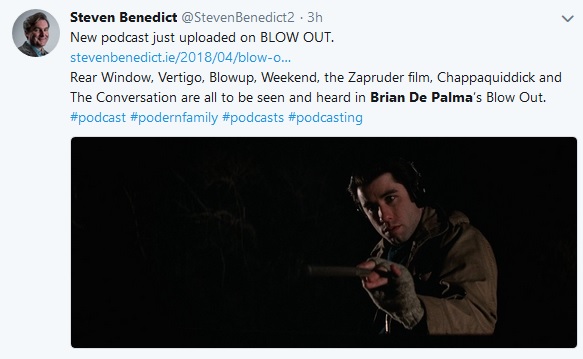
 Michiko Kakutani reviews James Comey's new book, A Higher Loyalty, for the
Michiko Kakutani reviews James Comey's new book, A Higher Loyalty, for the 
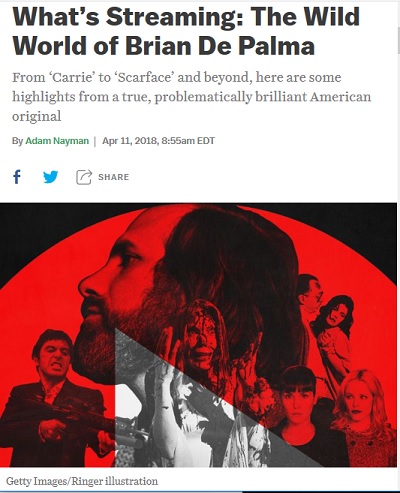
 Steven Bauer will join Brian De Palma, Al Pacino, and Michelle Pfeiffer for an on-stage conversation following the Tribeca Film Festival's 35th anniversary screening of Scarface at the Beacon Theatre in New York on April 19th. In the time since the event was first announced
Steven Bauer will join Brian De Palma, Al Pacino, and Michelle Pfeiffer for an on-stage conversation following the Tribeca Film Festival's 35th anniversary screening of Scarface at the Beacon Theatre in New York on April 19th. In the time since the event was first announced 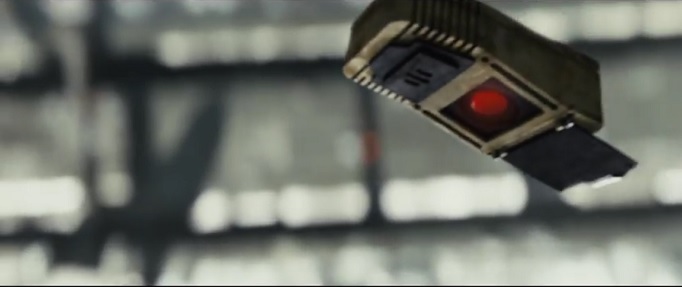
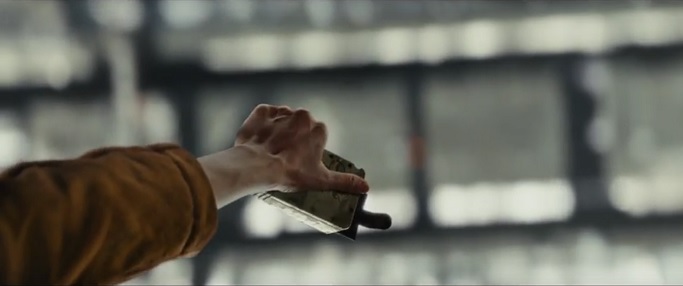
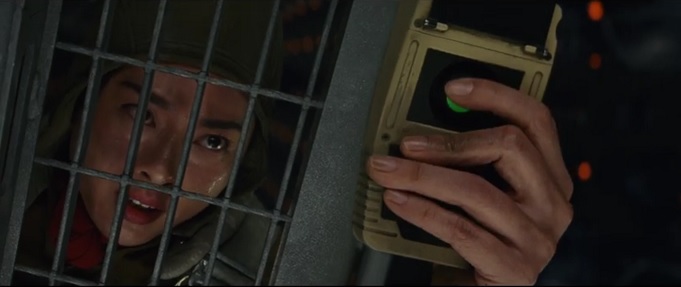
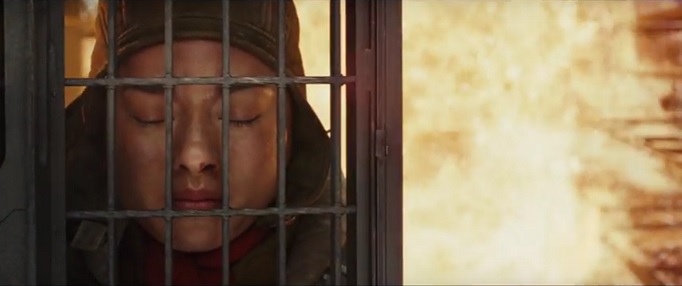



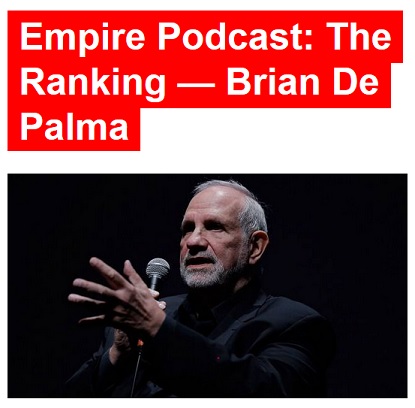 One of them makes a case for Mission: Impossible that the others make fun of him for, one of them tries to tell the others that Scarface is not thought of as anything great except by rappers and footballers, and there is disagreement about Phantom Of The Paradise, but there is also a lot that the four guys on this podcast agree on regarding Brian De Palma. Here's the introduction from
One of them makes a case for Mission: Impossible that the others make fun of him for, one of them tries to tell the others that Scarface is not thought of as anything great except by rappers and footballers, and there is disagreement about Phantom Of The Paradise, but there is also a lot that the four guys on this podcast agree on regarding Brian De Palma. Here's the introduction from 